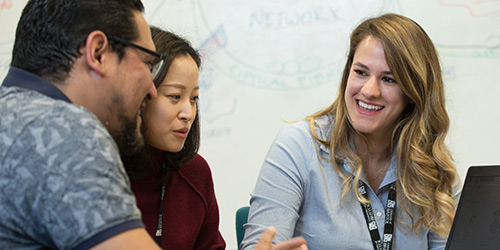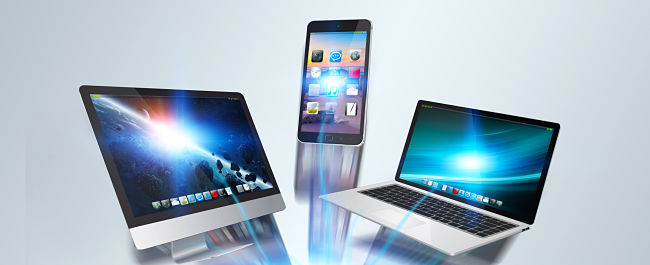Helping media organisations assess the climate change impacts of going digital
Research by Bristol’s Computer Scientists is helping media groups and policy makers to understand the environmental impact of the switch to digital services.
As they continue to shift towards digital delivery, media organisations with a keen sense of corporate social responsibility need to ask themselves some important questions. What are the greenhouse gas emissions resulting from their digital services? How does this compare with emissions associated with their print or traditional broadcast distribution? How can they integrate digital impact into their corporate sustainability policies? And what actions should they prioritise to become both carbon positive and digital-first?
Thanks to research at the University of Bristol, organisations are now able to answer all these questions and more to help drive positive change and reduce both strategic and reputational risk.
A new model for digital impact
 This work focused on developing a modelling framework and methodology for assessing the energy usage and associated climate emissions of digital services. The methodology takes an end-to-end perspective, incorporating energy used in data centres, network equipment, end user devices and user analytics data.
This work focused on developing a modelling framework and methodology for assessing the energy usage and associated climate emissions of digital services. The methodology takes an end-to-end perspective, incorporating energy used in data centres, network equipment, end user devices and user analytics data.
The framework can also be used as an environmental ‘digital twin’ of the digital services offered by organisations, allowing them to consider questions such as which parts of the service offering have the highest environmental impact and how alternative design decisions can make a positive difference
Development of the framework was initially conducted in partnership with the Guardian Media Group. Key research insights that emerged from that work included the identification of video services as being particularly impactful – for example, reading 10 minutes of web content using a smartphone over 3G uses around 9 kJ of electricity, while viewing 10 minutes of video uses around 145 kJ.
Following this initial set of results, the BBC’s R&D department asked to work jointly with the University of Bristol to extend the project to include the impact of switching to streaming services compared to traditional and advanced broadcasting technologies.
Further research also took place to help develop design guidelines for incorporating environmental factors in the design of digital services.
Step change in reporting and understanding
As a result of using the framework, Guardian Media Group now includes emissions associated with an end-to-end assessment of all its digital services into its CSR reporting and has become first company to report in this way. The work also helped the Group to confirm that the most effective short-term way to reduce emissions was to move data centres to cloud services and to improve the usability of apps over web access – a shift that it carried out in 2013-15 and has maintained since.
The BBC has identified various scenarios that will help it to shift away from broadcast to increased online distribution. This knowledge is represented by the BBC Chief Technology Officer at board level and is helping to inform and de-risk strategic decisions.
The work is also having a knock-on effect by informing policy debate on both a national and global level. Nationally, the Royal Society has used the results as part of an evidence review on the carbon emissions from digital systems. Globally, the International Energy Agency has said the work is supporting their work on the energy use of digital services.
In all cases, work is now continuing to refine the accuracy of energy use and emissions estimations and ensure that the digital transformation of the way we all consume media doesn’t come with unexpected cost to the environment.
 Work with us
Work with us
Our Industrial Liaison Office helps you to develop research partnerships.
Quick facts
- BBC and Guardian Media Group work with Bristol to assess impact of digital services
- New framework informs strategic decision making and influences national and global policy debates
